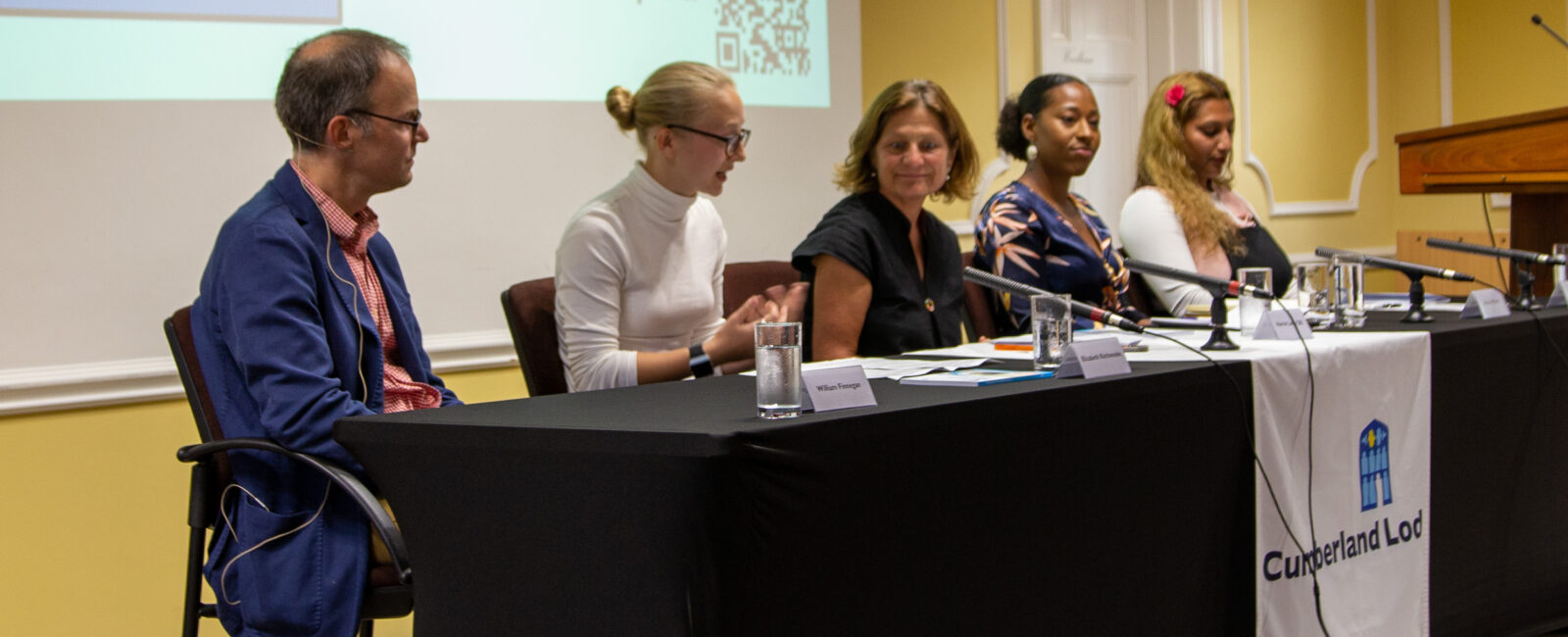If there is one word that sums up the launch of the Climate Futures: Youth Perspectives report at Cumberland Lodge on 16 September 2021, it is ‘intergenerational’.
Despite inheriting the brunt of climate change impacts through no fault of their own, young people are systematically excluded from environmental policymaking. Many policymakers claim they are inspired by youth climate activists but nevertheless, greenhouse gas emissions continue to rise.
The report aims to move beyond rhetoric and take youth perspectives seriously by collecting and disseminating their specific climate policy recommendations (17 of them, in fact). The recommendations, which were honed over two weeks of youth deliberation at a Cumberland Lodge virtual conference in March 2021, are designed to feed into negotiations at the upcoming United Nations COP26 climate conference in Glasgow in November 2021, as well as the youth-led Pre-COP conference in Milan in September 2021.
As a Cumberland Lodge Fellow and PhD candidate researching climate change communication at the University of Oxford, I was keen to attend this event and hear directly from the youth participants and climate experts involved in creating the report. The speakers included:
- Serena Bashal – Pre-COP26 Youth Delegate (UK representative) and member of the UK Youth Climate Coalition (UKYCC)
- William Finnegan – Freelance Research Associate for Cumberland Lodge and author of this report; Doctoral student at the University of Oxford
- Elizabeth Kitchenside – Sixth-form student and contributor to the report, and an intern at the Salvation Army
- Harriet Lamb CBE – Chief Executive of Ashden
- Azzees Minott – Chair of Greens of Colour (The Green Party)
The report
As the report’s author William Finnegan described in his opening remarks, the 92 conference participants were given the following prompt at the final conference session: COP26 negotiations have broken down and it’s up to you to take charge – what are your policy priorities?
Whilst there was discussion whether or not the recommendations should be made into a concise statement, the group opted for a more detailed, actionable, and measurable list of policy recommendations. Speaker Azzees Minott explained that she feels policymakers tend to wrongly equate being young with being naive. The report’s targeted suggestions prove that youth can offer tangible value and creative ideas for effective climate policies.
The recommendations
The 17 recommendations include a wide array of policy actions but generally focus on three intertwined challenges: climate, biodiversity, and inequality. Many of the recommendations call for greater incorporation of youth voices into policymaking by, for example, lowering the UK voting age to 16; conducting citizens’ assemblies on climate; and requiring intergenerational impact considerations for all legislation. Others focus on education, such as recommendation 12 which calls for the incorporation of sustainability into school curricula. Harriet Lamb felt this educational component was particularly vital, describing how she is working to help schools across the UK reduce their greenhouse gas emissions. Four of the recommendations are devoted exclusively to building accountability on climate action. Serena Bashal compared it to a professional football match – the game would fall apart without penalties. Likewise, policymakers are unlikely to meet their agreements without close monitoring and penalties for non-compliance.
Elizabeth Kitchenside noted that the recommendations do not require anything new to be invented. We already have the solutions to tackle climate change but the recommendations are needed to help ‘turbocharge’ them.
You can hear some of the youth participants describe their recommendations in the following video.
The climate action motorway
I personally like to think about climate action as driving on a motorway. We need to take the nearest exit but the challenge is that we’ve got many different competing hands on the wheel. The drivers (governments) tend to think of young people as those sitting in the back seat, pestering them over and over: ‘are we there yet?’ But if leaders actually pay attention to what youth have to say, they might be surprised by just how much they can offer. The specificity, thoughtfulness, and novelty of the recommendations in this report are a testament to the importance of integrating youth perspectives directly into environmental decision-making. Let us hope that come COP26, governments will finally listen to them.


